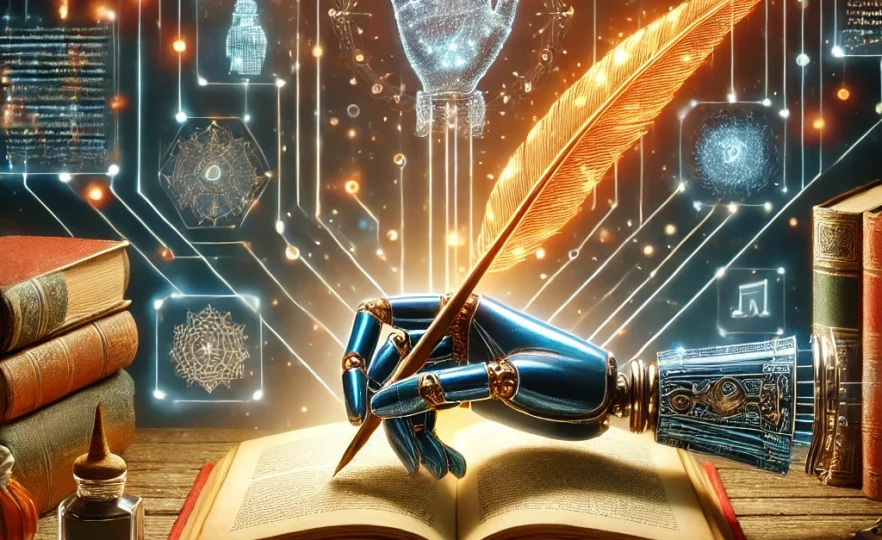AI in Literature 2025: Exploring the Role of Artificial Intelligence in Writing

Artificial intelligence is transforming the literary world, pushing the boundaries of creativity and redefining the way stories are written. In 2025, AI is not just assisting writers but is also taking center stage as a creative force in its own right.
How AI is Enhancing the Writing Process
AI tools are becoming indispensable for writers, offering suggestions, improving grammar, and even brainstorming ideas. Platforms like ChatGPT and Sudowrite allow authors to generate ideas, refine plots, and craft dialogue with precision. A lesser-known fact is that some authors use AI to analyze bestselling novels, identifying common themes and structures to incorporate into their own work. These tools save time and help writers focus on storytelling rather than technicalities.
The Rise of AI-Generated Fiction
AI-generated fiction is no longer a futuristic concept; it is a reality. Entire novels are being created using AI algorithms, often in collaboration with human authors. For instance, the novel 1 the Road, written by an AI modeled after Jack Kerouac, showcases how machines can mimic human creativity. These experiments raise questions about authorship and originality, sparking debates among readers and writers alike.
Ethical Questions in AI-Generated Literature
As AI becomes more involved in storytelling, ethical concerns are emerging. Who owns the copyright for AI-generated content? Should readers be informed when a book is partly or fully written by AI? These questions are becoming increasingly relevant as publishers explore the commercial potential of AI-created works.
How AI is Revolutionizing Publishing
AI is also reshaping the publishing industry by automating tasks like manuscript screening and market analysis. Algorithms can predict which books are likely to succeed based on trends and audience preferences. Some publishers use AI to create personalized recommendations, enhancing the reader experience. Did you know? AI-driven market analysis can reduce the time it takes to evaluate a manuscript from weeks to mere hours.
Balancing Technology and Creativity
While AI offers exciting possibilities, it cannot replace the human touch in storytelling. Readers crave emotional depth, complex characters, and unique perspectives that only human authors can provide. Successful integration of AI in literature involves collaboration, where technology supports rather than replaces human creativity.
The Future of AI in Literature
The future of AI in literature is both exciting and uncertain. As technology evolves, we may see AI co-authors become the norm or even entirely new genres inspired by AI capabilities. However, the challenge will be maintaining a balance between technological innovation and the authenticity of human expression.
Outbound Links
Internal Links
- Discover our blog on book genre trends
- Check out our collection of sci-fi books
- Read our guide to publishing trends in 2025
Which aspect of AI in literature excites you the most? Share your thoughts in the comments below and join the conversation about how technology is shaping the future of storytelling. Don’t forget to share this article with fellow book lovers and aspiring writers to spark a lively discussion!

